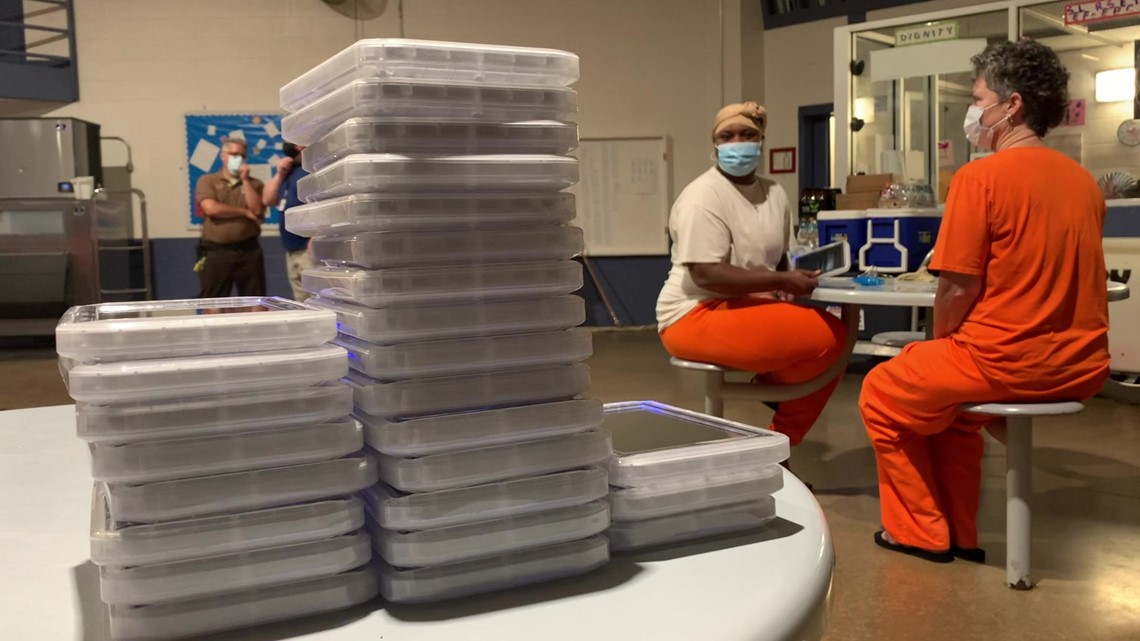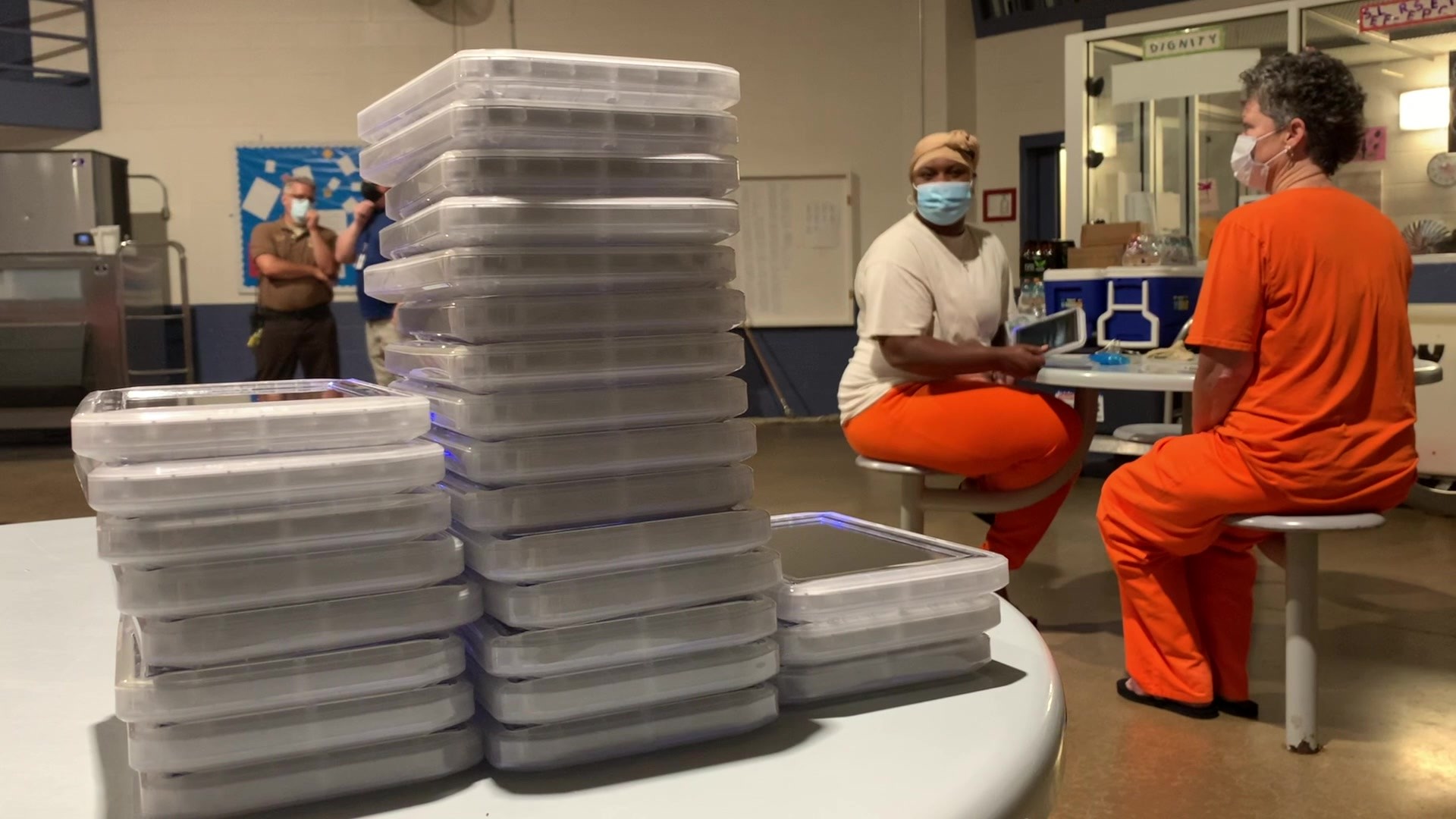DALLAS — The Texas Department of Criminal Justice will soon distribute computer tablets to almost all of its prison inmates across the state.
“We have 118,000 inmates. There will be a few categories, some of the disruptive inmates, that we may not be able to issue to… but at this point, we would have well over 110,000 tablets issued within the system,” said Bryan Collier, executive director of the Texas Department of Criminal Justice.
Collier made the comments in Tuesday’s "Virtual Re-entry Symposium" hosted annually by Unlocking Doors, a non-profit organization that prepares inmates to re-enter into society.
“Inmates will be given a tablet that will be preloaded with education materials, some e-books, some religious materials,” Collier added. “They have radio. They can also have music on it. It’ll come pre-loaded with some music. They will have an opportunity to buy some additional things to add to it.”
In addition, inmates can send and receive email – not real-time – but within 24-hours, Collier explained. They can even file a grievance on their tablets. Perhaps more importantly, he said, this creates a smart, safe way for prison administrators to put specific content in front of every inmate’s eyes.
Securus Technologies, based in Carrollton, makes the tablets and said it already has contracts with 25 departments of correction across the country.
Securus is providing the tablets free to Texas. The company will make money when inmates purchase subscriptions to additional content.
But Texas lawmakers say the technology will do something else for the state.
“You have to also look at the efficiencies that are earned in this,” state Rep. James White, R-Woodville, a long-time member of the House Corrections committee said. “If there are fewer people in the [prison] mailroom for example, dealing with paper and having to scan [a prisoner’s mail] to make sure it doesn’t have any contraband or any substance on it. It’s all of that you have to consider.”


In the coming weeks, Texas will begin distributing the tablets to inmates at the following ten prisons: the Diboll Unit near Lufkin, the Henley Unit near Houston, the Hightower Unit in Dayton, Kegans Intermediate Sanction Facility in downtown Houston, the Bell Unit in Cleveland, the Stevenson near Victoria, the Kyle Unit near San Marcos, the Roach Unit in the panhandle, the Halbert unit in Burnet, and the Murray Unit in Gatesville.
The remaining Texas prisons will get the tablets within the next 12 months, Collier said.
“We also have the opportunity for telehealth programs,” said state Rep. Carl Sherman, D-DeSoto, in the Opening Doors symposium.
Texas prison officials traveled to Oklahoma recently to observe the rollout of this same technology in that state.
“I’ve never seen a tablet, ever, ever, ever,” one female inmate in Oklahoma said. “It’s crazy because I was holding it and was like ‘oh gosh, I move it and it moves with me.’ I can’t stop messing with it. I’m like ‘ooh, what’s this? Ooh, what’s this?’”
Inmates are issued their own computer tablet, charger, earphones.
“We put this technology in their hands and once they are released, it better acclimates them to the outside and the technology that the public is enjoying right now,” said one official in Oklahoma.
Until now, an inmate’s connection with the outside world was limited, rightfully so, to phone calls, mail, and in-person visitation. But the COVID 19 pandemic restricted that even further. That’s when Texas began looking closer at the tablets, Collier said.
Still, they are a privilege that can be taken away or turned off.
In an era of criminal justice reform, the technology also represents a novel approach to improve security, morale, and education in Texas prisons.
Plus, a consistent connection to the outside world might also reduce recidivism.
“It is going to be a game changer,” Collier said.

